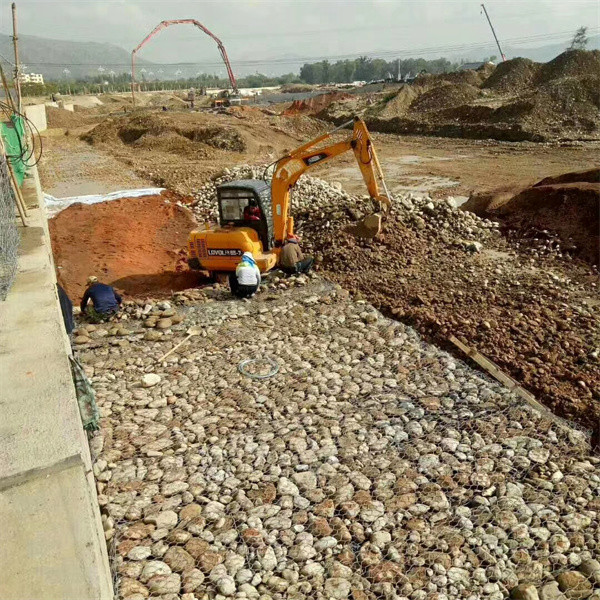Dec . 26, 2024 00:16 Back to list
gabion basket mesh manufacturer
The Importance of Gabion Baskets and Quality Mesh Manufacturing
Gabion baskets have emerged as an essential component in various civil engineering projects, providing effective solutions for issues related to erosion control, retaining walls, and landscaping. The underlying structure of these baskets relies on high-quality mesh materials, which are pivotal in ensuring durability, strength, and overall functionality. This article will delve into the significance of gabion baskets, the materials used in their manufacturing, and the critical role of mesh manufacturers in delivering superior products.
Understanding Gabion Baskets
Gabion baskets are wire containers filled with stones, concrete, or other materials, commonly used in landscaping and civil projects. The popularity of gabion structures stems from their versatility, ecological benefits, and cost-effectiveness. They serve as a formidable solution for preventing soil erosion along riverbanks and slopes and can be constructed into aesthetically pleasing features, such as benches and walls, that blend seamlessly into the environment.
These baskets are made of a mesh structure that allows water to flow through while holding the fill material securely. The mesh must possess specific qualities to withstand outdoor conditions, including resistance to corrosion and UV degradation, which are critical for maintaining the integrity of the gabion over time.
The Role of Mesh Quality
The mesh used in gabion baskets can be made from various materials, including galvanized steel, PVC-coated wire, and stainless steel. Each of these materials presents unique advantages. Galvanized steel, for instance, is widely preferred due to its resistance to rust and its ability to endure harsh weather conditions. On the other hand, PVC-coated wire provides an additional layer of protection and can be produced in different colors, enhancing the visual appeal of the finished project. Stainless steel offers superior strength and longevity but comes with a higher cost.
The manufacturing process of gabion mesh involves several stages, including wire drawing, coating, and weaving. High-quality mesh should meet industry standards for tensile strength, corrosion resistance, and overall durability. Manufacturers must adhere to strict regulations and guidelines to ensure the mesh can withstand the load and environmental conditions it will face upon installation.
Key Characteristics of a Reliable Mesh Manufacturer
gabion basket mesh manufacturer

When considering gabion basket mesh manufacturers, several key characteristics should be taken into account
1. Experience and Expertise A manufacturer with years of experience in the industry is better equipped to produce high-quality meshes. They should possess an understanding of the specific requirements for gabion applications.
2. Quality Control Processes Reliable manufacturers implement stringent quality control measures throughout the production process to ensure that every batch of mesh meets the required standards.
3. Customization Options The ability to customize the mesh according to specific project needs—such as mesh size, coating type, and wire thickness—demonstrates a manufacturer’s flexibility and commitment to customer satisfaction.
4. Sustainability Practices Considering the growing awareness of environmental issues, manufacturers should engage in eco-friendly practices, employing sustainable materials and production methods whenever possible.
5. Customer Support and Aftercare A manufacturer that offers excellent customer service, including technical support and consultation on best practices for installation and maintenance, can significantly enhance the user experience.
Conclusion
In summary, the efficacy of gabion baskets in various applications fundamentally relies on the quality of the mesh used in their construction. As a consequence, selecting a reputable gabion basket mesh manufacturer is crucial. High-quality mesh not only enhances the structural integrity and longevity of gabion installations but also contributes to successful project outcomes, whether in erosion control, landscape architecture, or other civil engineering endeavors. Ultimately, when selecting a manufacturer, consider their experience, quality assurance processes, customization options, and commitment to sustainability to ensure that you receive a product that meets your precise requirements.
-
hesco-gabion-baskets-for-coastal-erosion-prevention
NewsAug.22,2025
-
longevity-and-durability-of-river-rock-gabion-walls
NewsAug.22,2025
-
how-to-integrate-gabion-3d-walls-in-urban-planning
NewsAug.22,2025
-
reno-mattress-gabion-applications-in-civil-engineering
NewsAug.22,2025
-
how-to-install-wire-mesh-for-gabion-baskets-properly
NewsAug.22,2025
-
best-materials-for-filling-a-chain-link-gabion
NewsAug.22,2025
-
Wire Mesh Thickness Impact on Gabion Wall Load Bearing
NewsAug.12,2025






